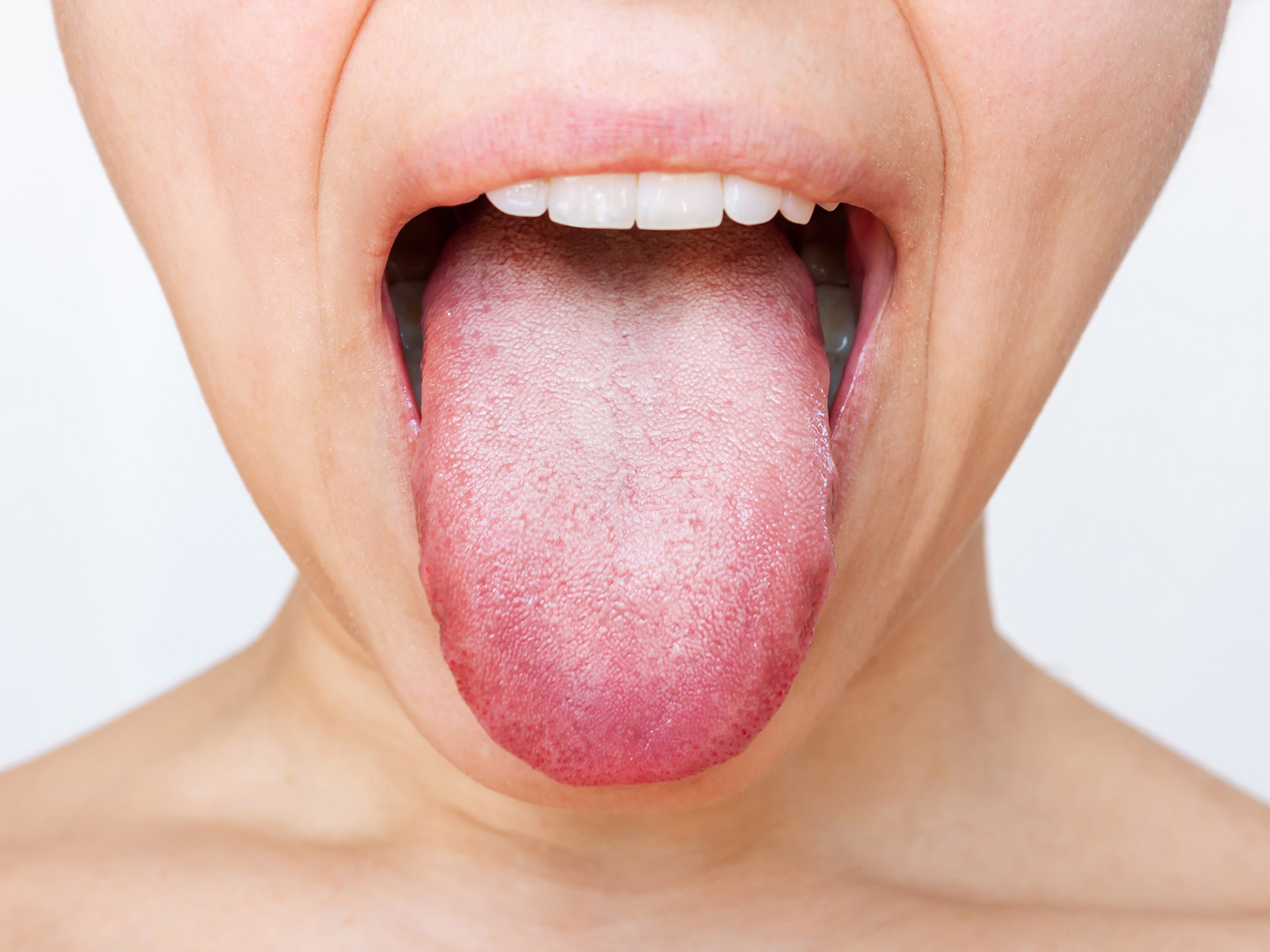What are the symptoms of white tongue?
White tongue can be associated with various conditions and typically presents with the following symptoms:
- White Coating: A white or off-white coating or film on the surface of the tongue.
- Texture Changes: The tongue may appear dry, rough, or uneven.
- Red or Inflamed Areas: Sometimes, there may be patches of redness or inflammation beneath the white coating.
- Bad Breath: An unpleasant odor may be present, often related to bacterial overgrowth or poor oral hygiene.
- Discomfort: Some people might experience discomfort, soreness, or a burning sensation on the tongue.
- Difficulty Eating or Swallowing: The white coating may affect the ability to taste or make eating uncomfortable.
White tongue can result from various factors, including poor oral hygiene, dehydration, oral thrush (fungal infection), bacterial infections, or systemic conditions. If you have persistent symptoms or are concerned, it’s a good idea to consult a healthcare provider for a proper diagnosis and treatment plan.
What are the causes of white tongue?
White tongue can be caused by a range of factors, including:
- Poor Oral Hygiene: Inadequate brushing and flossing can lead to bacterial and fungal buildup on the tongue.
- Dehydration: Insufficient fluid intake can cause the tongue to become dry and coated.
- Oral Thrush (Candida Infection): Fungal infections caused by the Candida species can lead to a white coating on the tongue.
- Bacterial Infections: Certain bacterial infections can result in a white tongue.
- Geographic Tongue: A benign condition where patches of the tongue’s surface lose their normal texture, resulting in a white or red appearance.
- Leukoplakia: A condition characterized by thick, white patches on the tongue and other areas of the mouth that may be precancerous.
- Lichen Planus: An inflammatory condition that can cause white patches or a lace-like pattern on the tongue.
- Systemic Conditions: Conditions such as diabetes, HIV/AIDS, or other immune disorders can affect the appearance of the tongue.
- Smoking and Alcohol Use: These habits can contribute to changes in tongue appearance and increase the risk of oral infections.
- Medications: Certain medications can cause oral side effects, including a white coating on the tongue.
If the white tongue persists or is accompanied by other symptoms, it’s important to consult a healthcare provider for a thorough evaluation and appropriate treatment.
What is the treatment for white tongue?
The treatment for a white tongue depends on the underlying cause. Here are common approaches based on different causes:
- Improving Oral Hygiene: Regular brushing of the tongue with a toothbrush or a tongue scraper can help remove the white coating. Brushing and flossing daily and using mouthwash can reduce bacterial and fungal buildup.
- Hydration: Drinking plenty of water can help keep the mouth hydrated and prevent a dry, white coating on the tongue.
- Treating Oral Thrush: Antifungal medications, such as nystatin or fluconazole, are typically prescribed for fungal infections like oral thrush.
- Addressing Bacterial Infections: Antibiotics may be needed if a bacterial infection is causing the white coating.
- Managing Geographic Tongue: This condition often resolves on its own, but maintaining good oral hygiene and avoiding irritants like spicy foods can help.
- Evaluating and Treating Leukoplakia: If leukoplakia is suspected, a biopsy may be performed to rule out cancer. Treatment may involve addressing the underlying cause or removing the patches.
- Treating Lichen Planus: Corticosteroids or other anti-inflammatory medications may be used to manage symptoms.
- Systemic Conditions: If the white tongue is related to a systemic condition, treating the underlying disease will help resolve the tongue symptoms.
- Quitting Smoking and Reducing Alcohol Use: Stopping these habits can improve oral health and reduce the white coating.
- Medication Side Effects: If a medication is causing the white tongue, consulting a healthcare provider for alternative treatments may be necessary.
In cases where the white tongue persists or is associated with other symptoms, it is important to consult a healthcare provider for a proper diagnosis and tailored treatment plan.

Leave a Reply
You must be logged in to post a comment.